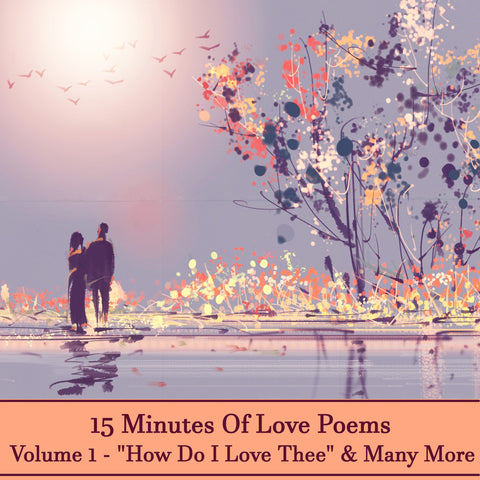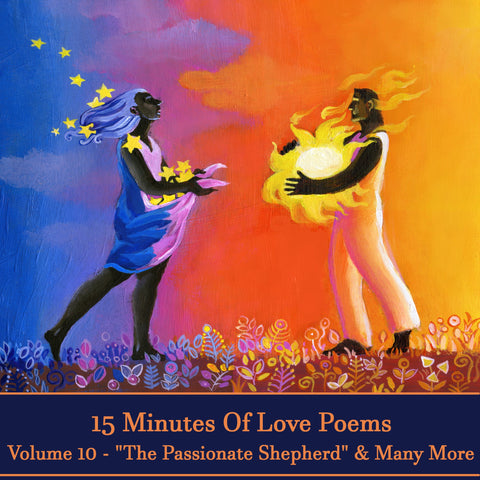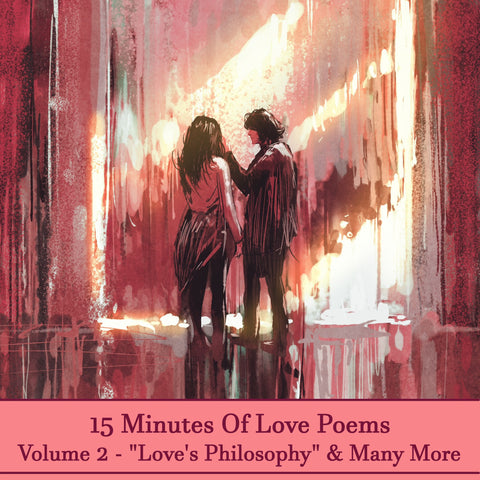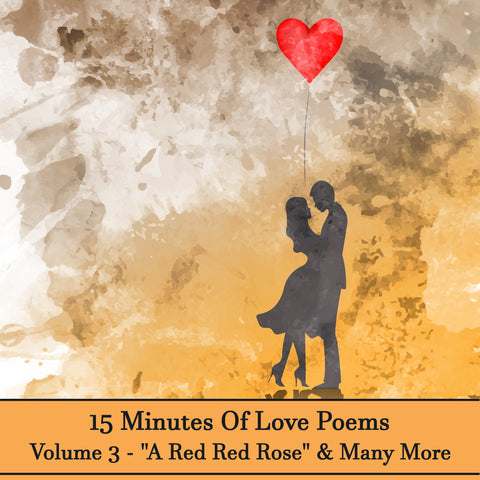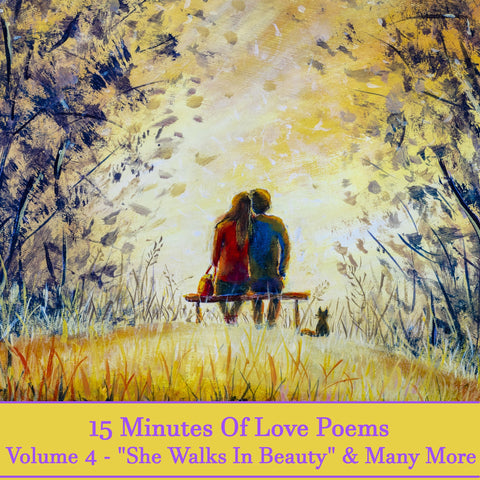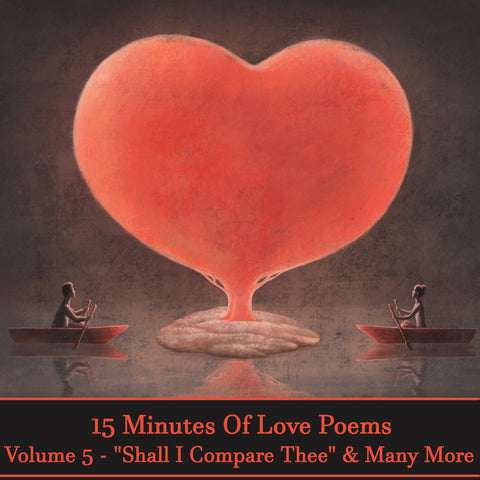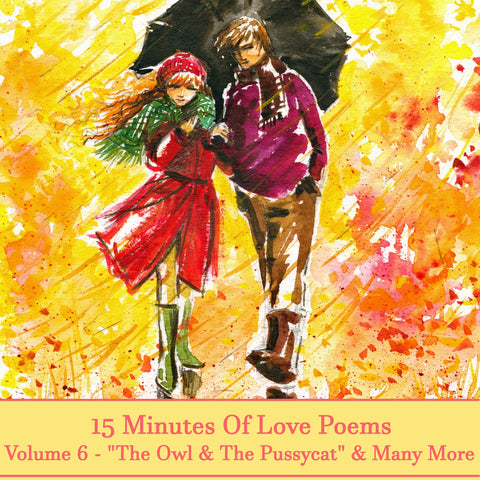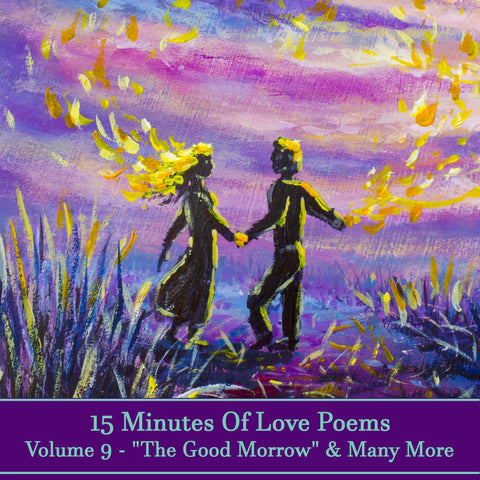Your cart is empty now.
Read by Richard Mitchley, Ghizela Rowe & Gideon Wagner (Unabridged: 1hr 2mins)
Robert Seymour Bridges, OM was born on 23rd October 1844 at Walmer in Kent where he spent his early childhood in a house overlooking the anchoring ground of the British fleet. His father died aged only 47 in 1853. A year later his mother remarried and the family relocated to Rochdale, where his stepfather was the vicar.
In 1854 Bridges was sent to Eton College and attended until 1863. After Eton he went to Corpus Christi College at Oxford. There he became good friends with Gerard Manley Hopkins and would later compile an edition of his poems that is now considered a major contribution to English literature.
He graduated from Oxford, in 1867, with a second-class degree in literae humaniores. Initially he planned to join the Church of England and travelled to the Middle East to broaden his religious horizons. However, he soon decided that life as a physician would be a better path and, after 8 months studying German (that being the language of many scientific papers at the time) he began his study of medicine at St. Bartholomew's Hospital in 1869. His long-term ambition was that by the age of forty he could retire from medicine to devote himself to writing.
Unfortunately Bridges failed his final medical examinations in 1873 and, as unable to immediately retake the papers, spent six months in Italy learning Italian as well as immersing himself in its art. In July 1874 he went to Dublin to continue his medical studies. Re-examined in December he passed and became a house physician at St Bartholomew's Hospital. It was whilst here that he engaged in a series of highly critical remarks about the Victorian medical establishment. One such was his claim that whilst working as a young doctor he saw a staggering 30,940 patients in one year.
A bout of severe pneumonia and lung disease forced his retirement from the medical profession in 1882 and so, slightly ahead of schedule, he began his literary career in earnest. He already been writing for several years and had published his first poetry collection in 1873.
After his illness and a trip to Italy, Bridges moved, with his mother, to Yattendon in Berkshire. It was during this time, from 1882 to 1904, that Bridges wrote most of his best-known lyrics as well as eight plays and two masques, all in verse.
It was also here, in 1884, that he married Monica Waterhouse. They would go on to have three children and spend the rest of their lives in rural seclusion, in an idyllic marriage, first at Yattendon, then at Boars Hill, Oxford.
Bridges made an important contribution to hymnody with the publication in 1899 of his Yattendon Hymnal. This collection of hymns became a bridge between the Victorian hymnody of the late 19th century and the modern hymnody of the early 20th century. He was also a chorister at Yattendon church for 18 years.
In 1902 Monica and his daughter Margaret became seriously ill with tuberculosis, and a move from Yattendon to a healthier climate was in order. After several temporary homes they moved abroad to spend a year in Switzerland before returning to settle again in England at Chilswell House, which Bridges had designed, and built on Boar's Hill overlooking Oxford University.
His greatest achievement though was still some years ahead of him. The office of Poet Laureate was held by Alfred Austin but with his death it was offered first to Rudyard Kipling, who refused it, and then to Bridges. He was appointed Poet Laureate in 1913 by George V, the only medical graduate to have ever held the office. Bridges, at this time, was neither highly regarded nor well known but a safe pair of hands in a World rapidly being overshadowed by the storms about to erupt over Europe and the First World War.
The events of this War, including the wounding of his son, Edward, had a sobering effect on Bridges' poetry. His work became fiercely patriotic. In 1915 edited a volume of prose and poetry, The Spirit of Man, intended to appeal to readers living in war times.
Despite being poet laureate Bridges was never a very well-known poet and only achieved popularity shortly before his death with The Testament of Beauty. Many of his poems though were set to music by such noted composers as Gustav Holst, Hubert Parry and Gerald Finzi.
The Testament of Beauty, for which he was to receive an Order of Merit, was begun on Christmas Day, 1924, with an initial 14 lines. He set the piece aside until 1926, when the death of his daughter Margaret prompted him to resume work as a way to ease his grief. It was published in October 1929.
Robert Seymour Bridges' health was failing and, undermined by cancer and its complications, he died at his home, Chilswell, on 21st April 1930. His ashes are buried near the family cross in the churchyard of St Peter and St Paul's Church, Yattendon, Berkshire.


